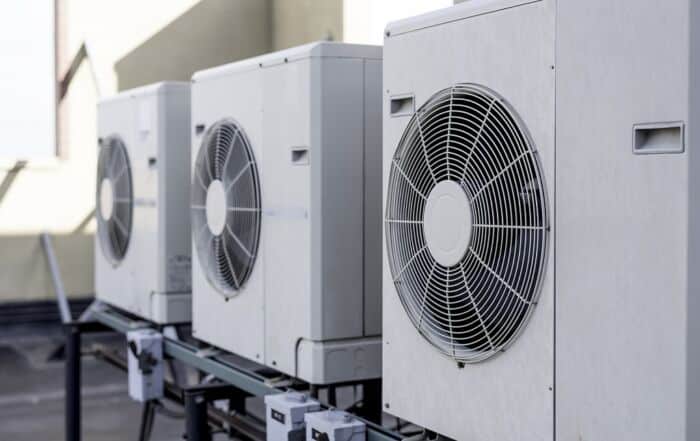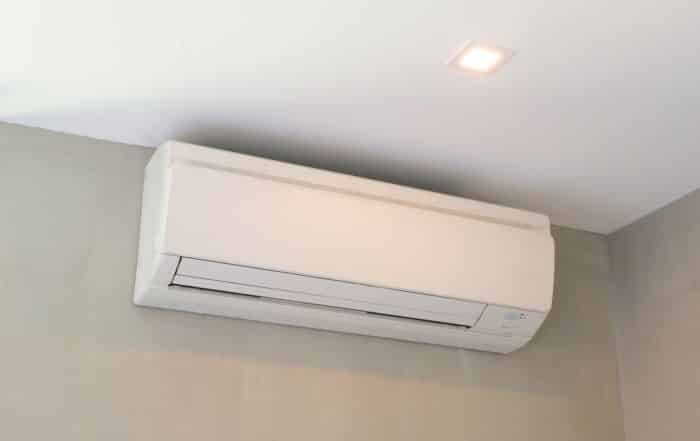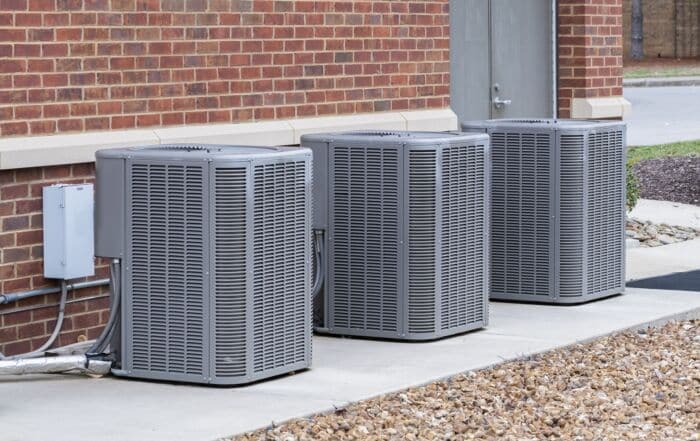Air conditioner filters play a crucial role in maintaining comfortable and healthy indoor air quality in your home. These filters trap dust, pollen, pet dander, and other airborne particles, preventing them from circulating throughout your living space and causing allergy symptoms or respiratory issues. In addition to promoting a healthier environment, clean filters also contribute to the energy efficiency and longevity of your air conditioning system by ensuring smooth and unrestricted airflow.
In this educational article, we will delve into the significance of air conditioner filters, explaining their various types, filtration efficiencies, and the ideal replacement frequency for maintaining an optimal indoor environment. Stay informed and keep your AC running at peak performance to save money on energy bills and prolong your system's lifespan. Enhance your Dallas home's comfort and air quality by prioritizing regular filter replacement.
Why AC Filters Matter
Air conditioner filters play a vital role in the overall performance and effectiveness of your HVAC system, with several core functions that directly impact your home's comfort and air quality:
- Protecting System Components: By trapping dust and debris, filters protect critical AC components such as the evaporator coil and blower motor from damage and reduced efficiency.
- Maintaining Indoor Air Quality: Filters help remove airborne particles such as pollen, pet dander, mold spores, and bacteria, contributing to a healthier indoor environment, especially for individuals with allergies or respiratory conditions.
- Enhancing Energy Efficiency: A clean filter ensures proper airflow and reduces the workload of your AC system, preventing it from overworking and consuming excessive energy.
- Prolonging System Lifespan: By addressing the above factors, regular filter replacement contributes to a longer-lasting and better-performing air conditioning system.
Types of AC Filters
There is a wide variety of air conditioner filters available on the market, each with its unique features and filtration capabilities. The most common types include:
- Fiberglass Filters: Made from spun fiberglass material, these filters are the most affordable but least effective in terms of particle removal. They protect the AC components but do not significantly improve indoor air quality.
- Pleated Filters: Composed of either cotton or polyester, pleated filters provide better filtration and particle removal compared to fiberglass filters. They effectively trap larger allergens such as dust, mold, and pollen while maintaining reasonable airflow.
- Electrostatic Filters: These filters generate a static charge that attracts airborne particles, resulting in improved filtration efficiency. Electrostatic filters come in two forms: disposable (for one-time use) and washable (for multiple uses). The washable type is cost-effective and eco-friendly, but regular cleaning is required to maintain efficiency.
- High-Efficiency Particulate Air (HEPA) Filters: Offering the highest filtration efficiency, HEPA filters can remove 99.97% of particles as small as 0.3 microns. However, they're not commonly used in residential AC systems due to their high air resistance, which can strain the HVAC system.
Filter Efficiency Ratings
Air filters are rated based on their ability to capture particles of different sizes and the percentage of these particles they remove. Two common rating systems for AC filters are MERV (Minimum Efficiency Reporting Value) and MPR (Microparticle Performance Rating).
- MERV Ratings: Ranging from 1 to 20, a higher MERV rating indicates better filtration efficiency. For residential AC systems, filters with a MERV rating between 8 and 13 are considered optimal, as they provide adequate filtration without impeding airflow. Filters with MERV ratings above 13 are typically used in commercial and healthcare settings.
- MPR Ratings: Developed by 3M, MPR ratings range from 300 to 1900 and evaluate a filter's ability to capture particles between 0.3 and 1 micron in size. Higher MPR ratings indicate better performance in removing microparticles.
When selecting a filter, consider your household's specific needs, such as the presence of allergy sufferers or the levels of indoor pollutants. Balance your filtration requirements with energy efficiency to avoid overburdening your AC system.
When to Replace Your AC Filter
Replacing your AC filter regularly is crucial for maintaining indoor air quality and system efficiency. However, the optimal replacement frequency depends on various factors such as:
- Filter Type: Disposable filters typically last between 30 and 90 days, while washable electrostatic filters need cleaning every 30-60 days, depending on usage.
- Indoor Air Quality: High levels of indoor pollutants or allergens may necessitate more frequent filter replacements, sometimes as often as every 30 days.
- Allergies or Asthma: Households with allergies or asthma sufferers may benefit from changing filters every 4-6 weeks to maintain optimal air quality.
- Pets: The presence of pets can introduce additional dander, hair, and dust into your home, requiring more frequent filter replacements or cleanings.
For the best results and improved longevity of your AC system, consult your user manual or an HVAC professional for guidance on filter replacement or cleaning intervals.
Choosing the Right Filter for Your Needs
When selecting the ideal filter for your air conditioning system, consider the specific needs of your Dallas home, such as allergen reduction, indoor air quality improvement, or the presence of pets. Balance these factors with the energy efficiency and airflow demands of your AC unit to avoid straining the system or causing performance issues.
Engage an HVAC professional to assess your home's unique requirements and recommend the most suitable filter type, rating, and replacement frequency for your comfort and peace of mind.
Steps to Replace Your AC Filter
- Turn Off the AC Unit: Before you begin, turn off the AC unit to ensure safety and prevent dust from circulating during the replacement process.
- Locate the Filter: The filter is usually located near the return air duct or the air handler unit. Consult your user manual if you're unsure of its exact location.
- Remove the Old Filter: Carefully remove the old filter and inspect it for dirt and debris. Note the direction of the airflow arrows on the filter frame.
- Insert the New Filter: Place the new filter into the slot, ensuring the airflow arrows point in the correct direction. Make sure it fits snugly without any gaps.
- Turn On the AC Unit: After replacing the filter, turn the AC unit back on and check for proper operation.
- Set a Reminder: Mark your calendar or set a reminder on your phone for the next filter replacement date based on the manufacturer's recommendations or your household needs.
Benefits of Regular Filter Replacement
Regularly replacing your AC filter offers several benefits that contribute to a more comfortable and efficient home environment:
- Improved Air Quality: Clean filters effectively trap airborne particles, reducing allergens and pollutants in your home.
- Enhanced System Efficiency: Unrestricted airflow allows your AC unit to operate more efficiently, reducing energy consumption and lowering utility bills.
- Extended System Lifespan: Regular filter maintenance prevents dust and debris from damaging critical AC components, leading to a longer-lasting system.
- Reduced Repairs: A well-maintained filter reduces the likelihood of system breakdowns and costly repairs by preventing strain on the AC unit.
- Comfortable Indoor Environment: Consistent filter replacement ensures your home remains cool and comfortable, even during peak usage periods.
Understanding the importance of AC filters–their role in maintaining indoor air quality, enhancing system efficiency, and prolonging the lifespan of your air conditioner–is crucial for a comfortable and healthy home environment. By choosing the right filter type, and rating, and adhering to the recommended replacement or cleaning schedule, you can ensure optimal AC performance, energy savings, and improved indoor air quality in your Dallas home.
For expert guidance on filter selection, maintenance, and other air conditioning needs, trust the professionals at Dallas Heating & Air Conditioning. Our experienced technicians are committed to delivering exceptional air quality and HVAC services to enhance your comfort and system efficiency. Don't let subpar filters create discomfort in your home–Contact us today at (469) 833-3743 to schedule a service!
Related Posts
Exploring Ductless Air Conditioning Systems for Small Spaces
If you’re a homeowner tired of sweating through sweltering summers, a ductless air conditioning [...]
Signs Your Air Conditioning Unit Needs Professional Maintenance
Imagine coming home on a sweltering summer day only to find that your air [...]
Common Misconceptions About Air Conditioning Usage and Costs
Air conditioning units are a staple in many homes, especially during the hot summer [...]


